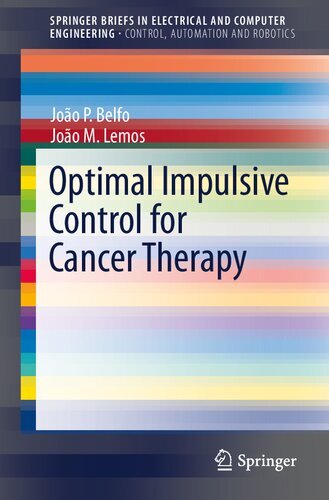

Most ebook files are in PDF format, so you can easily read them using various software such as Foxit Reader or directly on the Google Chrome browser.
Some ebook files are released by publishers in other formats such as .awz, .mobi, .epub, .fb2, etc. You may need to install specific software to read these formats on mobile/PC, such as Calibre.
Please read the tutorial at this link: https://ebookbell.com/faq
We offer FREE conversion to the popular formats you request; however, this may take some time. Therefore, right after payment, please email us, and we will try to provide the service as quickly as possible.
For some exceptional file formats or broken links (if any), please refrain from opening any disputes. Instead, email us first, and we will try to assist within a maximum of 6 hours.
EbookBell Team

4.3
78 reviewsThis Springer brief discusses the use of control engineering methods to plan a cancer therapy which tends to reduce tumour size in patients, striking a balance that minimizes the toxic effects of the treatment. The authors address the design and computation of impulsive control therapies, a methodology previously underexplored in the application of control methods to medical modelling. This allows simulation of such discrete events as taking a pill rather than relying on the supply of therapy being continuous and steady.
The book begins with an introduction to the topic, before moving onto pharmacokinetic, pharmacodynamical and tumour-growth models and explaining how they describe the relationship between a certain therapy plan and the evolution of cancer. This is placed firmly in the context of work introducing impulsive differential equations. The final chapter summarizes the research presented and suggests future areas of research to encourage readers in taking the subject forward.
This book is of interest to biomedical engineers, researchers and students, particularly those with a background in systems and control engineering.